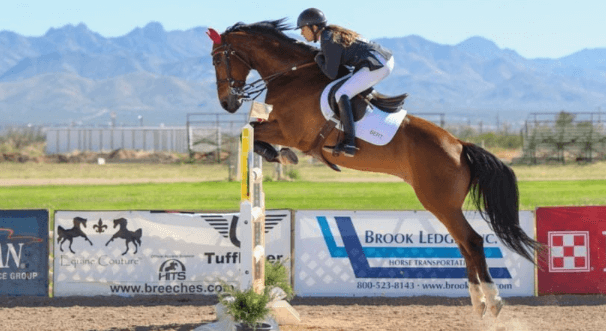How can riders effectively manage their horse’s energy throughout an eventing competition?

Understanding Horse Energy Levels
Managing a horse’s energy levels begins with understanding the basics of equine physiology. Horses have large, efficient muscles that can store significant energy reserves. Recognizing signs of fatigue, such as heavy breathing, excessive sweating, and a lack of response to commands, is essential. Knowing how to balance energy expenditure with conservation is key to success in eventing.
Pre-Competition Preparation
Preparation is crucial for ensuring your horse is in peak condition. This involves a balanced diet rich in carbohydrates, fats, and proteins, tailored to the horse’s workload. Regular conditioning, including cardiovascular and strength training exercises, helps build endurance and muscle memory. Training routines should mimic competition conditions as closely as possible.
Monitoring Energy During Competition
During the competition, it’s vital to continuously monitor your horse’s energy levels. Look for signs of fatigue and use tools such as heart rate monitors and GPS trackers to gather real-time data. Adjusting your strategy based on this feedback can help conserve energy for the later phases of the event.
Dressage Phase Strategies
In the dressage phase, focus on a thorough but not exhaustive warm-up to prepare the horse without depleting energy reserves. Maintaining calmness and reducing unnecessary movements can conserve energy. Properly executed dressage movements should be precise and efficient, minimizing wasted effort.
Cross-Country Phase Strategies
The cross-country phase is the most physically demanding. Effective pacing is crucial – starting too fast can lead to early fatigue, while a slow start might make it hard to catch up. Hydration is essential, with water stops strategically placed throughout the course. Managing adrenaline levels helps in maintaining control and preventing the horse from burning out too quickly.
Show Jumping Phase Strategies
Show jumping requires a balance of energy conservation and precise execution. Warm up just enough to get the horse alert but not tired. Focus on maintaining a steady rhythm and using efficient jumping techniques to conserve energy.
Effective Cooling Down Techniques
Post-event cooling down is crucial to prevent muscle stiffness and promote recovery. Walking the horse, hosing them down with cool water, and using fans can help bring down the body temperature gradually. Stretching and light massages can also aid in muscle recovery.
Nutritional Support
Proper nutrition is a cornerstone of energy management. Ensure the horse receives a balanced diet with adequate carbohydrates for energy, proteins for muscle repair, and fats for sustained energy release. Supplements such as electrolytes can help maintain hydration and muscle function.
Hydration Management
Hydration is paramount in maintaining a horse’s energy levels. Regular access to fresh water, especially during and after intense exercise, is crucial. Electrolyte supplements can help replenish minerals lost through sweat and prevent dehydration.
Rest and Recovery Post-Event
Rest and recovery are as important as the competition itself. Allowing the horse ample time to rest, along with providing massages and light exercise, can aid in muscle recovery and energy restoration. Monitoring the horse for any signs of injury or fatigue is also essential.
Common Mistakes to Avoid
Avoid overworking your horse, which can lead to burnout and injuries. Improper feeding and hydration can also negatively impact performance. Ensure a balanced diet and consistent hydration schedule to keep the horse in top form.
Tools and Technologies for Monitoring
Modern technology offers various tools to monitor a horse’s health and energy levels. Wearable tech like heart rate monitors, GPS trackers, and fitness apps can provide valuable insights into your horse’s performance and recovery needs.
Mental Preparation for Riders
A rider’s mental state can significantly impact a horse’s performance. Techniques such as visualization, stress management, and maintaining physical fitness can help riders perform at their best, thus positively influencing the horse.
The Role of the Support Team
A strong support team, including grooms, veterinarians, and coaches, plays a crucial role in managing a horse’s energy. Their expertise in monitoring the horse’s health, providing timely interventions, and offering strategic advice is invaluable.
Weather Considerations
Weather conditions can affect a horse’s energy levels. Hot, humid weather can lead to quicker fatigue, while cold weather can impact muscle function. Adjusting training and competition strategies based on weather forecasts can help manage energy effectively.
Building a Strong Rider-Horse Relationship
A strong bond between rider and horse is essential for effective energy management. Understanding your horse’s cues, strengths, and weaknesses allows for better communication and adjustments during the competition.
Cross-Training Benefits
Incorporating different training disciplines, such as swimming or hill work, can improve overall fitness and prevent monotony. Cross-training helps build various muscle groups and can enhance a horse’s endurance and agility.
Tailoring Training to Individual Horses
Each horse is unique, and training should be customized to their specific needs. Identifying and working on the horse’s strengths and weaknesses can optimize performance and energy management.
Equipment and Tack Selection
The right equipment and tack can make a significant difference in a horse’s comfort and performance. Ensure that saddles, bridles, and other gear fit well and do not cause discomfort or restrict movement.
Importance of Regular Vet Checks
Regular veterinary check-ups are essential to monitor the horse’s health, detect any potential issues early, and ensure that the horse is in optimal condition for competition. Preventative care can help avoid injuries and health problems.
Emergency Preparedness
Being prepared for emergencies, such as injuries or sudden health issues, is critical. Knowing basic first aid and having a plan in place can make a significant difference in the horse’s well-being.
Sustainability in Eventing
Sustainable practices in eventing, such as maintaining trails and reducing environmental impact, are important for the longevity of the sport. Promoting eco-friendly practices helps preserve the environment for future generations.
Developing a Long-Term Energy Management Plan
Long-term planning involves setting goals, adjusting training and competition strategies, and continuously monitoring the horse’s health and performance. A well-thought-out plan helps maintain the horse’s energy and overall well-being.
Case Studies of Successful Riders
Learning from successful riders can provide valuable insights into effective energy management strategies. Case studies highlight practical techniques and real-world applications that can be adopted by other riders.
FAQs on Managing Horse Energy
How can riders effectively manage their horse’s energy throughout an eventing competition?
Managing a horse’s energy during an eventing competition involves careful planning and monitoring. This includes ensuring the horse is well-conditioned, maintaining proper nutrition and hydration, and using pacing strategies during the event. Monitoring tools like heart rate monitors can provide real-time data, helping riders make informed decisions.
What are the key signs that a horse is fatigued?
Signs of fatigue in a horse include heavy breathing, excessive sweating, a lack of responsiveness to commands, and stumbling. Monitoring these signs and taking appropriate action, such as slowing down or resting, is crucial to prevent exhaustion.
How important is hydration in managing a horse’s energy?
Hydration is critical for maintaining a horse’s energy levels and overall health. Horses lose a significant amount of electrolytes through sweat, which can lead to dehydration and fatigue. Providing regular access to fresh water and electrolyte supplements helps maintain hydration.
What are some effective cooling down techniques after a competition?
Effective cooling down techniques include walking the horse to help lower its heart rate gradually, hosing down with cool water, and using fans. These methods help prevent overheating and promote muscle recovery.
How can nutrition impact a horse’s energy levels during a competition?
A balanced diet provides the necessary nutrients for energy production and muscle repair. Carbohydrates supply quick energy, proteins aid in muscle recovery, and fats offer sustained energy. Proper nutrition before, during, and after the competition is essential for optimal performance.
What role does the support team play in managing a horse’s energy?
The support team, including grooms, veterinarians, and coaches, plays a vital role in managing a horse’s energy. They help monitor the horse’s health, provide timely care, and offer strategic advice to optimize performance and recovery.
Conclusion
Effectively managing your horse’s energy throughout an eventing competition requires a comprehensive approach that includes proper training, nutrition, hydration, and monitoring. By understanding and addressing the unique needs of your horse, you can ensure peak performance and safety during the event. Building a strong support team and using modern tools and technologies can further enhance your ability to manage your horse’s energy efficiently. Remember, the key to success in eventing lies in preparation, continuous monitoring, and adapting strategies to meet the demands of each phase of the competition.





